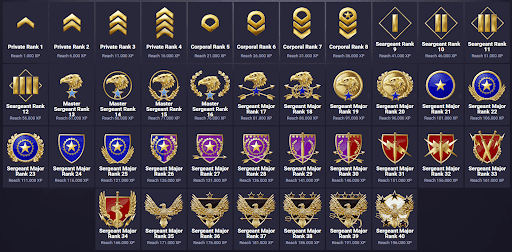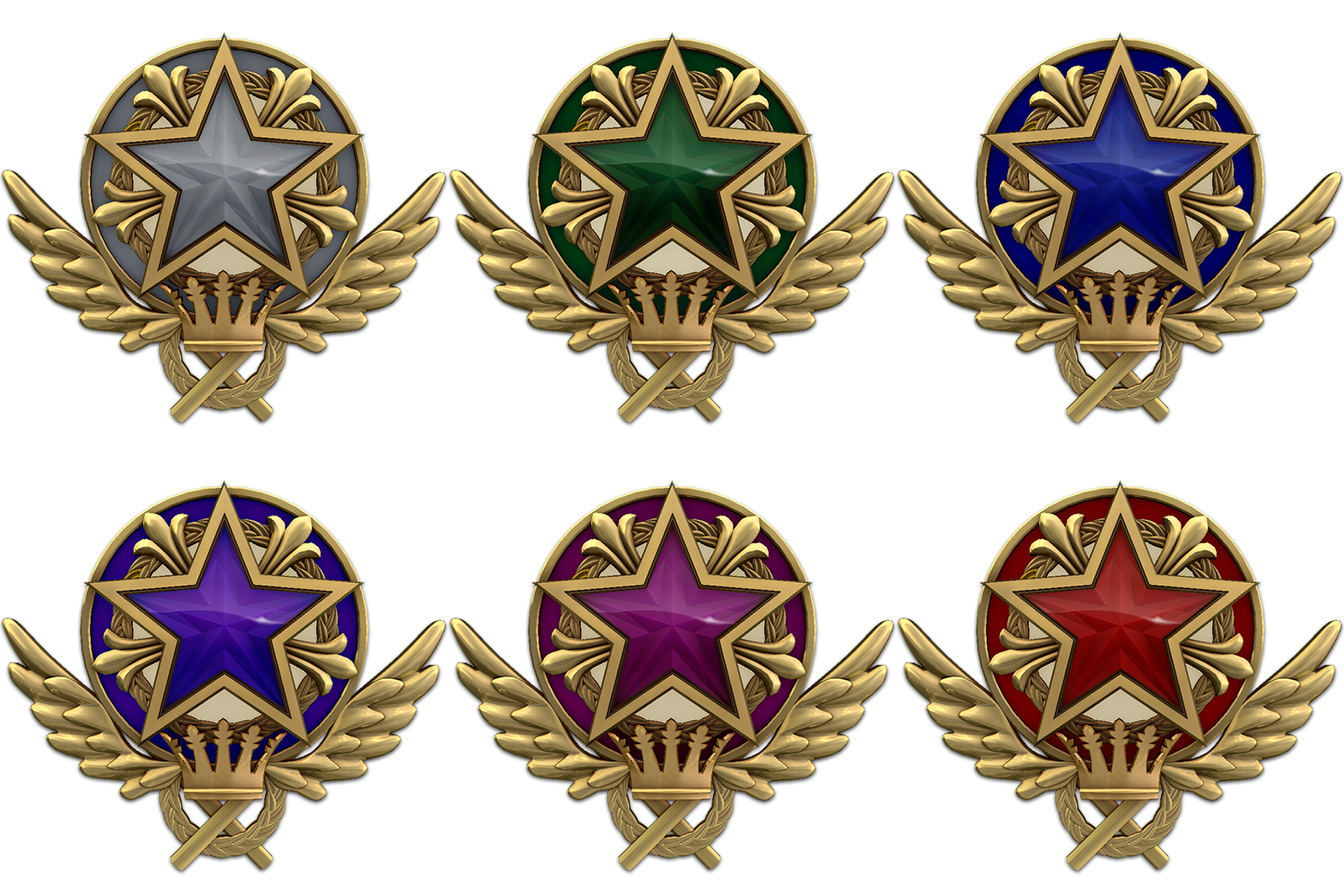How the XP System Works in CS:GO
Learn the ropes around the XP system and how you can level up faster.
Learn the ropes around the XP system and how you can level up faster.
The XP system is something that wasn’t in the game since its release. In fact, it’s relatively recent, at least compared to other in-game systems like Matchmaking Rank. It’s one more thing that players can look out for, get some rewards, and overall just have a better gaming experience!
The XP system is also directly related to the ability to play competitive games, with or without Prime enabled. In fact, a new account cannot start a competitive queue until it gets to level 2, which is 6000 XP (Experience Points) away. And you need level 21 to even queue with Prime enabled. Let’s see how all of this works!
The Level and Experience system in CS:GO is rather simple - it goes from 1 to 40 and then the player can “Prestige”. In exchange, they go back to level 1 but receive an untradeable medal that they can show off in their profile. It’s important to note that after you Prestige, you won’t be locked out of competitive queues until level 2 or 21 again. You’re free to keep playing, so don’t worry.
Simply, by playing. Whatever the game mode you’re in, you will get XP at the end of the match - it can be a casual match, an Arms Race, Deathmatch, everything works! But note that only “official” modes from Valve actually give out XP. Services like ESEA or FACEIT will not get you to higher levels.
It’s a long process, though. It’s something that will be secondary and just a bonus during your playtime. Every level has exactly the same amount of XP needed to progress (5000 XP) and will take more than a few competitive matches to even get up one.
You’ll also have a “Bonus XP” that resets on a weekly basis. That weekly bonus consists of 5000 XP and once you deplete it, you’ll stop receiving it until the next weekly reset. Also, if you end up playing a lot every week, you’ll notice that your XP multipliers will start getting lower and lower every match until you reach 11167 XP. That’s how the system is designed - it’s made to serve as a secondary bonus, and not as the main goal.

CS:GO Experience Ranks - Image courtesy of VALVE and eloboss
Just as I mentioned briefly in the beginning of the article, it’s important to level up on CS:GO so you can access all the game modes in the game, mainly those competitive queues. It can be tedious to go up a full level if you’re a returning player that’s just playing on a new account, but it’s also something needed for the game to avoid new accounts that might be done just to cheat and ruin the game for everyone. If you’re a new player, that level is more than enough to get at least briefly in touch with the gun mechanics of the game and how they work.
After you reach level 2, you unlock competitive matchmaking. The next big step is level 21, where you unlock Prime competitive matchmaking, which should improve your game experience substantially. Prime matchmaking locks out all free accounts from your matches, meaning that only players who got the game before it turned F2P or bought the upgrade from the Steam Store will be able to enjoy it. Once again, it’s another roadblock made to avoid even more cheaters and it seems to work relatively well. Not only do you have to pay for it, which I recommend, getting to level 21 will take literally weeks!
After that, you should be looking forward to level 40, where you can get a Service Medal! Once you reach level 40, you’ll get a notification in your game menu saying that you can reset your progress and get the Medal, which you can then display in your profile. Valve releases a new design for the Service Medal every year, and you can upgrade it every time you get to level 40, changing its color and showing just how dedicated you are to the game!

CS:GO Service Medals (2020) - Image courtesy of VALVE
If you look at numbers alone, Casual Matchmaking seems to be the fastest way to rack up some quick XP.
The formula for XP calculation is: Your final score X 4
Casual can be a good way to practice before going into real competitive matches, although with a lot of added bonuses like Kevlar every round and way more players per team. Let’s say you get a 57 score at the end of the casual match - you’ll get 228 XP for the entire match, which could end up being even more after all the bonuses are applied. It's definitely a great way to level up.
Definitely the best and fastest way to level up is Deathmatch. Arms Race is decent.
The formula for XP calculation is: Your final score X 0.2 for Deathmatch and X 1.0 for Arms Race
The multiplier might be a lot lower than casual, but don’t underestimate the numbers. You can get way more kills (and consequently way more points) in Deathmatch or Arms Race, which means that your XP will accumulate way faster than you’re expecting.
As an added bonus, you’ll get to sharpen your aim before jumping into competitive!
The real deal of CS:GO! Competitive is where you’ll most likely end up spending most of your time after you get level 2.
The formula for XP calculation is: Your rounds won X 30
Just like a true team-based game, your personal performance does not count towards the XP you receive here - it’s actually your team’s score. This means that if you win the match (16 rounds), you’ll always receive 480 XP (plus the bonuses you might have). It’s not the fastest way, since a match can take around 30-45 minutes to complete, but it’s definitely the most fun way.
You’ll also be able to receive huge amounts of XP by doing Operation missions, but it’s something that is not present in the game at all times. Think of them like Seasonal Events, that once they arrive, they last for a few months.
Just grab an Operation Pass (yes, you need to buy them) and do some missions! You’ll also get some XP boosts as drops at the end of the matches from time to time.
Note, for all of these methods, you need to play until the end of the match to be eligible to win XP. You won’t get XP throughout the match, but instead in the end.
Hopefully, this article was helpful and helped you understand how the Level and XP system works in CS:GO! Get out there and have fun!
You can reach out to me for feedback or suggestions via Twitter!
Visit our partner VIE for the safest market and best customer care in esports betting.
Must be age 18+ and reside in a country where online gambling is legal. Gamble responsibly